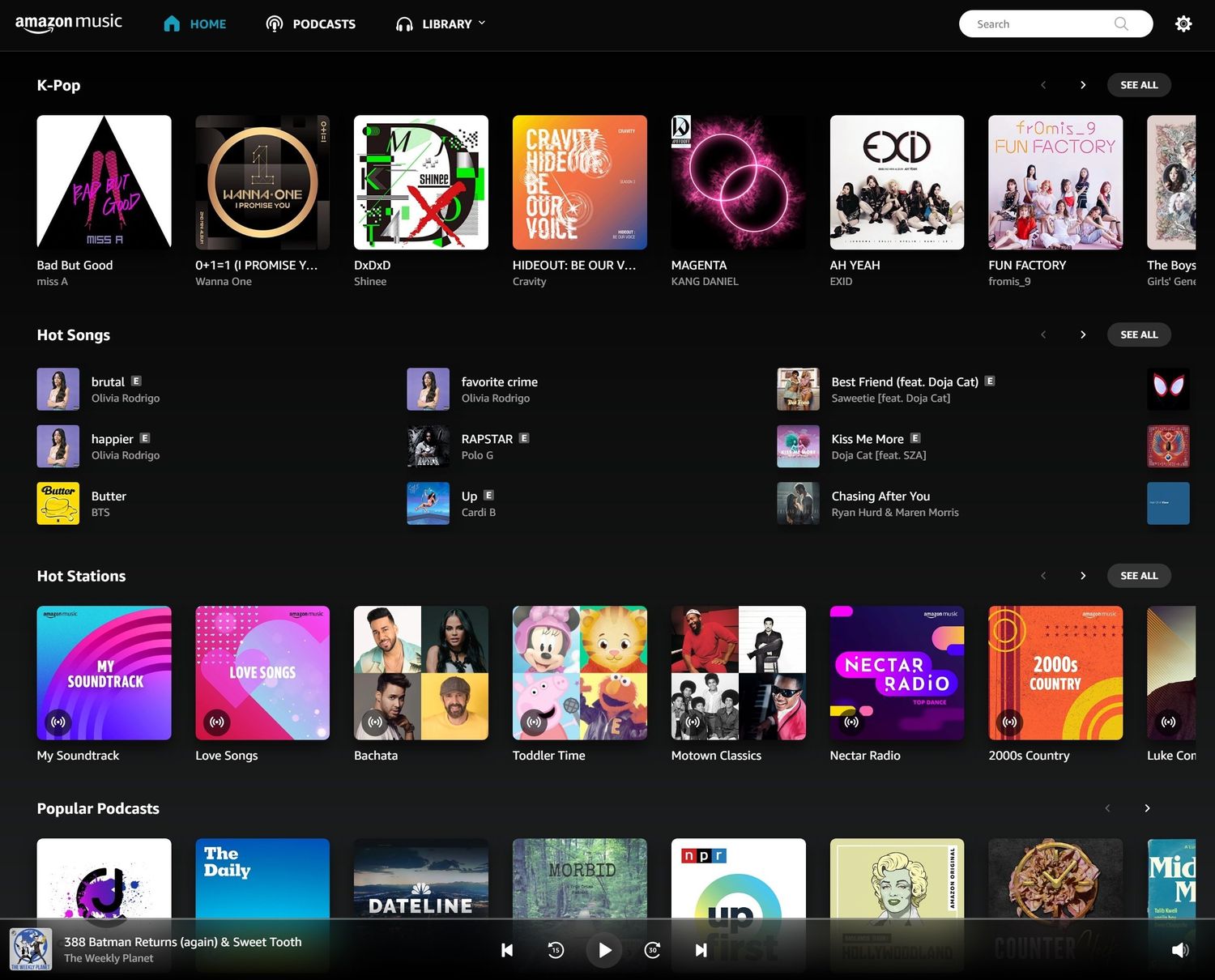Home>Events & Info>Music Therapy>How Does Someone Get Into Music Therapy Work


Music Therapy
How Does Someone Get Into Music Therapy Work
Published: February 2, 2024
Learn how to enter the rewarding field of music therapy and discover the important role it plays in improving mental and emotional well-being.
(Many of the links in this article redirect to a specific reviewed product. Your purchase of these products through affiliate links helps to generate commission for AudioLover.com, at no extra cost. Learn more)
Table of Contents
Introduction
Music has the power to heal, soothe, and uplift the human spirit. It has a profound impact on our emotions, offering comfort and solace in times of distress. Music therapy harnesses the therapeutic qualities of music to enhance physical, emotional, cognitive, and social well-being. It is a research-based profession that utilizes music interventions to address a wide range of goals, ranging from reducing pain and anxiety to improving communication and promoting self-expression.
Music therapy is a dynamic and rapidly growing field, attracting individuals who are passionate about music and helping others. Music therapists are highly-trained professionals who integrate their knowledge of music with therapeutic techniques to work with diverse populations, including children and adults with developmental disabilities, individuals managing mental health challenges, patients undergoing medical treatments, and seniors with cognitive impairments.
This article provides a comprehensive overview of the field of music therapy, including its definition, educational requirements, certification and licensing, job opportunities, work settings, duties and responsibilities, required skills, and the challenges and rewards that come with a career in music therapy.
If you are interested in music therapy and wondering how to get started in this rewarding profession, read on to discover the path to becoming a music therapist and making a meaningful difference in the lives of others through the power of music.
What is Music Therapy?
Music therapy is an evidence-based practice that uses music to address the physical, emotional, cognitive, and social needs of individuals. It is a therapeutic process that is guided by a trained music therapist who utilizes music interventions to achieve specific goals and improve overall well-being.
Music therapists work with individuals of all ages and abilities, tailoring their interventions to meet the unique needs of each person. They may use live or recorded music, instruments, singing, movement, and songwriting as therapeutic tools. By engaging in musical activities, individuals can express themselves, process emotions, develop new skills, improve communication, and enhance their quality of life.
Music therapy sessions may take place in various settings, such as hospitals, schools, rehabilitation centers, mental health facilities, nursing homes, and private practices. The goals of music therapy can be diverse, including pain management, stress reduction, emotional expression, social skills development, cognitive stimulation, and physical rehabilitation.
Research has shown that music therapy can have a range of positive effects on individuals. It can help reduce anxiety and depression, improve mood, enhance self-esteem, promote relaxation, increase motivation, and stimulate the brain. Music has the unique ability to reach individuals on an emotional level and evoke powerful responses, making it an effective therapeutic tool in various contexts.
Music therapy is a client-centered approach, meaning it takes into consideration the preferences, needs, and goals of the individual receiving the therapy. The music therapist assesses the client’s strengths and challenges and designs interventions that are tailored to their specific circumstances. Sessions may be conducted one-on-one or in a group setting, depending on the therapeutic goals and the preferences of the individual.
In summary, music therapy is a field that harnesses the power of music to promote healing, growth, and well-being. It is a holistic approach that addresses the physical, emotional, cognitive, and social aspects of individuals, offering a unique and effective means of therapy.
Education and Training
Becoming a music therapist requires a solid education and training foundation. The first step in pursuing a career in music therapy is to obtain a bachelor’s degree in music therapy from an accredited program. These programs typically include coursework in music theory, psychology, anatomy and physiology, counseling techniques, and therapeutic approaches. Students also gain practical experience through internships and clinical placements, where they work under the supervision of experienced music therapists.
After completing a bachelor’s degree, aspiring music therapists must pursue additional education at the master’s level. A master’s degree in music therapy further enhances clinical skills and knowledge, allowing therapists to specialize in specific populations or areas of practice. Master’s programs often include advanced coursework, research opportunities, and a supervised clinical internship.
Throughout their education, music therapy students engage in extensive musical training, developing proficiency on various instruments, voice, and music technology. They also learn how to create and implement therapeutic interventions using music, understanding the impact of different musical elements on individuals’ responses and outcomes.
Accreditation is an important aspect of music therapy education and training. The American Music Therapy Association (AMTA) and the Certification Board for Music Therapists (CBMT) set and uphold standards for music therapy education programs. It is essential to choose a program that is approved by the AMTA and CBMT to ensure that the education received meets the necessary requirements for certification.
Continuing education is crucial throughout a music therapist’s career. As the field evolves and new research emerges, music therapists must stay updated on the latest techniques, interventions, and regulations. Continuing education opportunities, such as conferences, workshops, and online courses, allow therapists to expand their knowledge base and refine their skills.
Professional development and training in related areas can also be beneficial to music therapists. For example, additional training in areas such as counseling, psychology, neuroscience, and special education can provide valuable insights and enhance a therapist’s ability to address a diverse range of client needs.
In summary, a solid educational foundation is essential for becoming a music therapist. This involves obtaining a bachelor’s degree in music therapy, followed by a master’s degree to further enhance knowledge and clinical skills. Continuous learning and professional development are crucial for music therapists to stay current and provide the best possible care to their clients.
Certification and Licensing
In order to practice as a professional music therapist, certification is typically required. Certification is granted by the Certification Board for Music Therapists (CBMT) and is recognized as the standard credential in the field. To be eligible for certification, individuals must meet specific educational requirements and pass the board examination.
Education requirements for certification include obtaining a bachelor’s or master’s degree in music therapy from an accredited program. This ensures that individuals have received the necessary training and education to practice as a music therapist. Additionally, candidates must complete a minimum number of supervised clinical hours, as specified by the CBMT.
The board examination, known as the Music Therapist-Board Certified (MT-BC) exam, assesses the knowledge, skills, and competencies necessary for entry-level music therapy practice. The exam covers a wide range of topics, including music therapy theory, assessment, treatment planning, therapeutic techniques, ethics, and professional responsibilities. Successfully passing the exam demonstrates a candidate’s readiness to practice as a professional music therapist.
Once certified, music therapists may use the credential MT-BC after their name, indicating their board certification. This provides professional recognition and demonstrates the therapist’s commitment to maintaining the highest standards of practice. Certification must be renewed every five years through the CBMT’s recertification process, which includes continuing education requirements.
Licensing requirements for music therapists vary by state and country. While not all jurisdictions have specific licensing requirements, some states may require music therapists to obtain a license to practice. Licensing typically involves meeting additional criteria, such as completing additional supervised clinical hours, passing a state-specific exam, or providing proof of professional liability insurance.
It is important for aspiring music therapists to research the certification and licensing requirements in their specific jurisdiction to ensure compliance with the necessary regulations. This may involve contacting the state or national music therapy association for guidance and information.
In summary, certification through the CBMT is the standard credential for music therapists. It demonstrates the therapist’s education, training, and competency in the field. Licensing requirements, on the other hand, vary by jurisdiction and may be necessary in some states. Adhering to certification and licensing requirements ensures that music therapists are practicing ethically and professionally, while upholding the highest standards of care for their clients.
Job Opportunities
Music therapy offers a wide range of job opportunities for those interested in using music as a therapeutic tool. Music therapists work in various settings, providing services to diverse populations. Here are some of the common job opportunities in the field of music therapy:
- Hospitals and Healthcare Facilities: Many hospitals and healthcare facilities employ music therapists to work with patients of all ages and medical conditions. Music therapists may collaborate with medical teams to integrate music therapy into treatment plans and address the physical, emotional, and psychosocial needs of patients.
- Schools and Educational Institutions: Music therapists play a vital role in schools, working with students who have special needs or learning disabilities. They use music to enhance academic skills, promote social interaction, and support emotional well-being.
- Rehabilitation Centers: Music therapy is often utilized in rehabilitation centers to assist individuals in their recovery from injuries, surgeries, or neurological conditions. Music therapists work with physical and occupational therapists to help patients regain motor skills, improve coordination, and enhance cognitive functioning.
- Mental Health Facilities: Music therapy is an integral part of many mental health treatment programs. Music therapists work with individuals struggling with mental health disorders, providing a safe and supportive environment for emotional expression, self-reflection, and building coping skills.
- Senior Care Facilities: Music therapy is highly beneficial for seniors with dementia or other cognitive impairments. Music therapists use personalized music interventions to stimulate memory, promote emotional well-being, and improve overall quality of life.
- Private Practice: Some music therapists choose to establish their own private practice, offering individual or group sessions to clients in their community. This allows for a more personalized and flexible approach to therapy.
Job opportunities in music therapy may also be found in community centers, palliative care settings, addiction treatment facilities, correctional facilities, and military/veterans programs.
It is important to note that the availability of job opportunities may vary depending on the geographical location and the demand for music therapy services. Networking, professional affiliations, and continuous education can also contribute to expanding job prospects in the field.
In summary, music therapy offers a wide range of job opportunities in diverse settings. Whether in healthcare facilities, schools, rehabilitation centers, or private practices, music therapists have the opportunity to make a meaningful impact on the lives of individuals through the power of music.
Work Settings
Music therapists have the opportunity to work in a variety of settings, each with its own unique dynamics and challenges. The work setting can greatly influence the population served, the therapeutic goals, and the overall approach to delivering music therapy services. Here are some common work settings for music therapists:
- Hospitals and Healthcare Facilities: Music therapists may work in hospitals, clinics, and other healthcare settings. They collaborate with medical teams to provide music therapy services to patients undergoing medical treatments, individuals with chronic illnesses, or those receiving palliative care. Music therapists may also work in specialized units such as oncology, pediatrics, or geriatrics.
- Schools and Educational Institutions: Music therapists can be found in schools of various levels, from preschools to universities. They work with students who have special needs or learning disabilities, supporting their educational, social, and emotional development. Music therapists collaborate with teachers and other professionals to create inclusive learning environments.
- Rehabilitation Centers: Music therapists often work in rehabilitation centers, such as physical and occupational therapy clinics or inpatient rehabilitation units. They help individuals recover motor skills, improve coordination, and regain speech and language abilities through music-based interventions.
- Mental Health Facilities: Music therapy is an integral part of mental health treatment programs. Music therapists work in psychiatric hospitals, mental health clinics, or residential treatment centers, providing therapeutic interventions for individuals with mental health disorders such as depression, anxiety, or schizophrenia.
- Senior Care Facilities: Music therapy is highly beneficial for seniors in assisted living facilities, nursing homes, or memory care centers. Music therapists use music to stimulate memory, reduce agitation, enhance social interaction, and improve overall well-being and quality of life for older adults.
- Private Practice: Some music therapists choose to establish their own private practice, offering individual or group sessions to clients in their community. This allows for a more personalized approach to therapy and flexibility in developing specialized programs to meet the unique needs of clients.
These are just a few examples of the work settings where music therapists can be found. Other potential settings include community centers, correctional facilities, addiction treatment centers, military/veterans programs, and hospices.
Each work setting presents its own set of challenges and rewards. It is important for music therapists to adapt their approach and interventions based on the specific needs and goals of the population they are serving. Building strong rapport with clients and collaborating with other professionals in the multidisciplinary team are key aspects of successful practice in any work setting.
In summary, music therapists have the opportunity to work in a variety of settings, ranging from healthcare facilities and schools to rehabilitation centers and senior care facilities. Each setting provides a unique context for delivering music therapy interventions and making a positive impact on individuals’ well-being.
Duties and Responsibilities
Music therapists have diverse duties and responsibilities that encompass various aspects of the therapeutic process. Their primary goal is to utilize music to address the physical, emotional, cognitive, and social needs of their clients. Here are some of the key duties and responsibilities of music therapists:
- Assessment: Music therapists conduct thorough assessments of their clients to gather information about their strengths, challenges, and goals. They may use standardized assessments, observation, interviews, and client self-report to gather data that will inform the development of individualized treatment plans.
- Treatment Planning: Based on the assessment findings, music therapists develop treatment plans that outline specific goals, objectives, and interventions. Treatment plans are tailored to the unique needs and preferences of each client and may be adjusted as therapy progresses.
- Individual and Group Sessions: Music therapists provide individual and group music therapy sessions to clients. These sessions involve engaging clients in various musical activities, such as playing instruments, singing, songwriting, and improvisation. The therapist uses the power of music to facilitate emotional expression, enhance self-awareness, stimulate cognition, and promote social interaction.
- Documentation: Music therapists maintain detailed documentation of their sessions, including progress notes, treatment summaries, and periodic evaluation of client progress. Documentation ensures effective communication with the client’s treatment team and supports continuity of care.
- Collaboration: Collaboration is a crucial aspect of a music therapist’s role. They work closely with other healthcare professionals, educators, and caregivers to ensure an integrated and holistic approach to client care. Collaboration may involve attending team meetings, providing input on treatment plans, and participating in multidisciplinary treatment teams.
- Educational and Outreach Activities: Music therapists may engage in educational and outreach activities to raise awareness about the benefits of music therapy and promote its integration into various settings. This can include conducting workshops, presentations, and community-based programs to advocate for the field and provide information to the public.
- Continuing Education: Music therapists are committed to professional growth and development. They engage in ongoing continuing education activities to stay updated on best practices, research advancements, and new techniques in the field of music therapy.
Each duty and responsibility is carried out with the intention of improving the overall well-being and quality of life of clients. Music therapists strive to create a safe and therapeutic environment where clients can freely express themselves, experience emotional release, and develop new skills through the power of music.
In summary, music therapists have a wide range of duties and responsibilities that revolve around assessment, treatment planning, individual and group sessions, documentation, collaboration, education, and personal professional growth. These responsibilities reflect the holistic and client-centered approach of music therapy.
Skills Required
Being a music therapist requires a unique blend of musical, therapeutic, and interpersonal skills. Here are some of the key skills and qualities that are essential for success in the field of music therapy:
- Musical Proficiency: Music therapists must have a strong foundation in music and demonstrate proficiency in playing various instruments, singing, and music theory. They should have a deep understanding of the principles of rhythm, melody, and harmony, and be able to adapt music to meet the needs and preferences of their clients.
- Therapeutic Knowledge: Music therapists should possess a solid understanding of therapeutic techniques, theories, and approaches. They need knowledge of psychology, human development, and counseling techniques to effectively use music as a means of intervention. Understanding the therapeutic process and being able to apply it in a music-centered context is essential.
- Interpersonal and Communication Skills: Music therapists work closely with clients, their families, and other healthcare professionals. Excellent communication and interpersonal skills are necessary to build trust, establish rapport, and effectively collaborate with others. Being empathetic, patient, and able to listen actively are crucial for creating a therapeutic environment.
- Creative and Flexible Approach: Music therapists should have a creative mindset and be able to think outside the box. They need to adapt and modify interventions to meet the unique needs and abilities of each client. Being able to improvise and think creatively in the moment is essential for facilitating meaningful connections and responses through music.
- Emotional Regulation: Music therapists may encounter challenging emotional situations during therapy sessions. They need to be able to regulate their own emotions while remaining attuned to the emotions of their clients. Having emotional resilience and self-awareness is important for maintaining a safe and supportive therapeutic space.
- Cultural Competence: Music therapists work with individuals from diverse cultural backgrounds. Having cultural competence and an understanding of the influence of culture on individuals’ responses to music is crucial. Being respectful, open-minded, and inclusive of different cultural beliefs and practices enhances the therapeutic relationship.
- Organization and Time Management: Music therapists often work with multiple clients and have administrative responsibilities. Good organizational and time management skills are necessary to effectively plan and schedule sessions, document progress, and manage administrative tasks.
While these skills are essential for success in the field of music therapy, it is important to note that they can be developed and honed over time through education, training, and hands-on experience. Continuous professional development and self-reflection are key in further developing these skills throughout a music therapist’s career.
In summary, music therapists should possess a combination of musical, therapeutic, and interpersonal skills. These skills enable them to effectively apply music as a therapeutic tool, facilitate meaningful connections with clients, and create transformative experiences through the power of music.
Challenges and Rewards
Like any profession, working as a music therapist comes with its own set of challenges and rewards. Understanding these aspects can help individuals who are considering a career in music therapy make an informed decision. Here are some of the challenges and rewards of being a music therapist:
Challenges:
- Emotional Demands: Music therapists often work with clients who may be facing difficult emotional challenges or dealing with trauma. Engaging with clients’ emotions on a deep level can be emotionally demanding and require self-care strategies to prevent burnout.
- Administration and Documentation: The administrative responsibilities associated with the profession, such as documentation, treatment planning, and scheduling, can be time-consuming. Finding a balance between clinical work and administrative tasks is crucial for effective time management.
- Limited Resources: Access to resources, such as funding for music instruments and equipment, may sometimes be limited, especially in certain work settings or regions. Music therapists may need to find creative solutions to work with the resources available to them.
- Professional Advocacy: Music therapy is still a relatively young and evolving profession, which means that music therapists often need to advocate for the value and importance of their work. Raising awareness and educating others about music therapy can be an ongoing challenge.
Rewards:
- Making a Difference: One of the most rewarding aspects of being a music therapist is the opportunity to make a positive impact on clients’ lives. Seeing individuals make progress, overcome challenges, and reach their goals through music therapy is incredibly fulfilling.
- Creative Expression: Music therapy provides a unique avenue for creative expression and exploration. Designing and implementing music-based interventions allows therapists to tap into their own creativity and experience the joy of using music as a therapeutic tool.
- Building Meaningful Connections: Music therapists have the privilege of building strong therapeutic relationships with their clients. These connections are built on trust, empathy, and shared musical experiences, creating a safe and supportive space for personal growth and healing.
- Continuous Learning and Professional Growth: The field of music therapy is continually evolving, requiring therapists to engage in lifelong learning and professional development. The opportunity to expand knowledge, learn new therapeutic approaches, and stay updated on research advancements keeps the work stimulating and intellectually fulfilling.
- Multidisciplinary Collaboration: Music therapists often work as part of a multidisciplinary team, collaborating with other healthcare professionals, educators, and caregivers. Collaboration allows for a holistic and integrated approach to client care, providing opportunities for learning from and working alongside professionals from different disciplines.
It is important to acknowledge that the challenges and rewards of being a music therapist can differ based on individual experiences, work settings, and client populations. The balance between challenges and rewards may vary, and personal fulfillment may come from different aspects of the profession.
In summary, while music therapy may come with challenges, the rewards of positively impacting clients’ lives, engaging in creative expression, building meaningful connections, and continuing professional growth make it a fulfilling and worthwhile profession for those passionate about the transformative power of music.
Conclusion
Music therapy is a rewarding and evolving profession that utilizes the power of music to promote healing, growth, and well-being in individuals of all ages and abilities. Music therapists integrate their knowledge of music and therapeutic techniques to address the physical, emotional, cognitive, and social needs of their clients. Through individual and group sessions, they create a safe and supportive environment for expression, personal growth, and self-discovery.
To embark on a career in music therapy, aspiring therapists must complete a solid educational foundation, including a bachelor’s degree in music therapy from an accredited program, followed by a master’s degree for further specialization. Certification through the Certification Board for Music Therapists (CBMT) is typically required, demonstrating the therapist’s education and competency in the field.
Music therapists have diverse job opportunities in various settings, such as hospitals, schools, rehabilitation centers, mental health facilities, and private practice. They work with a broad range of populations, including individuals with developmental disabilities, mental health challenges, medical conditions, and seniors with cognitive impairments.
Success in the field of music therapy requires a combination of musical proficiency, therapeutic knowledge, interpersonal skills, and adaptability. Challenges such as emotional demands, administrative responsibilities, limited resources, and professional advocacy may be encountered. However, the rewards of making a difference, engaging in creative expression, building meaningful connections, and continuous professional growth outweigh the challenges.
In conclusion, a career in music therapy offers a unique opportunity to bring healing and transformation through the power of music. It is a profession that requires passion, dedication, and a commitment to lifelong learning. Music therapists have the privilege of witnessing the profound impact music has on individuals’ lives, making it a fulfilling and impactful career choice.











